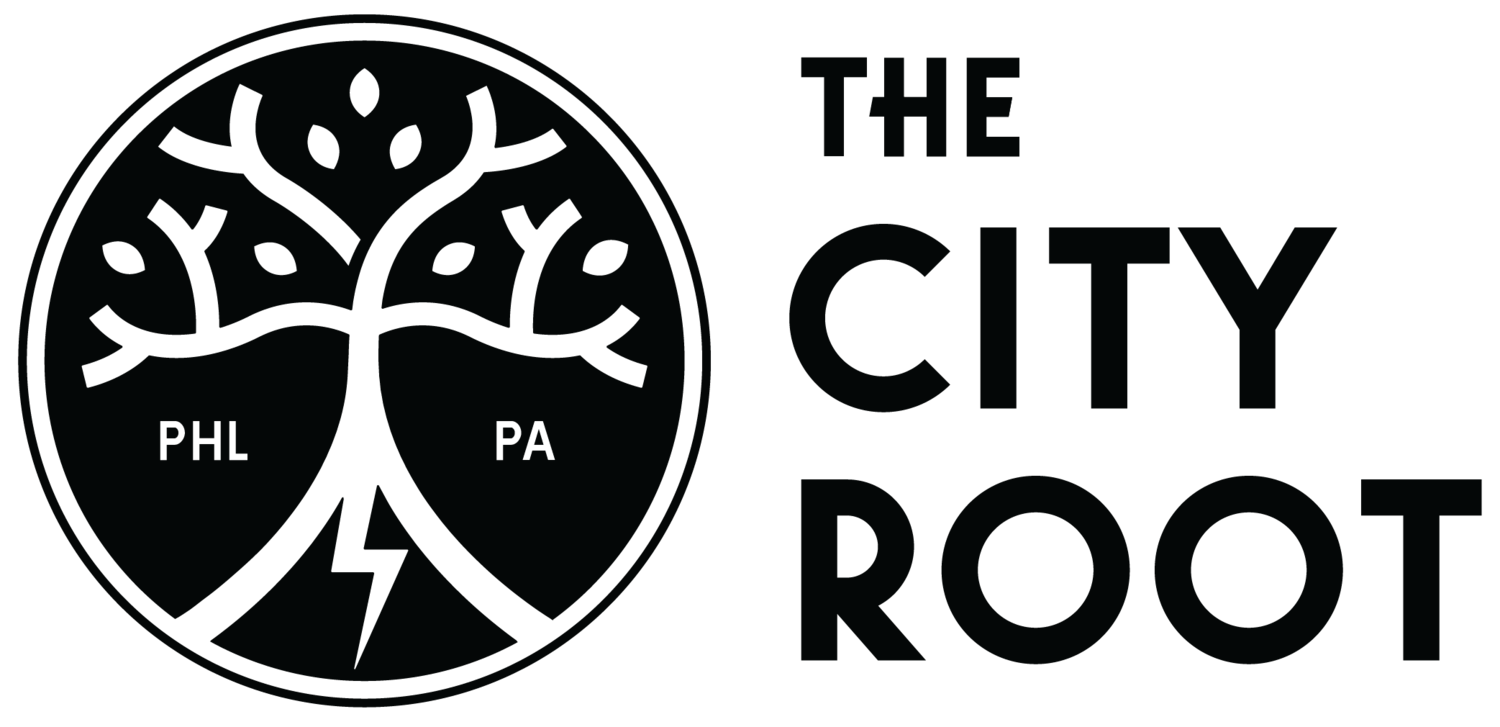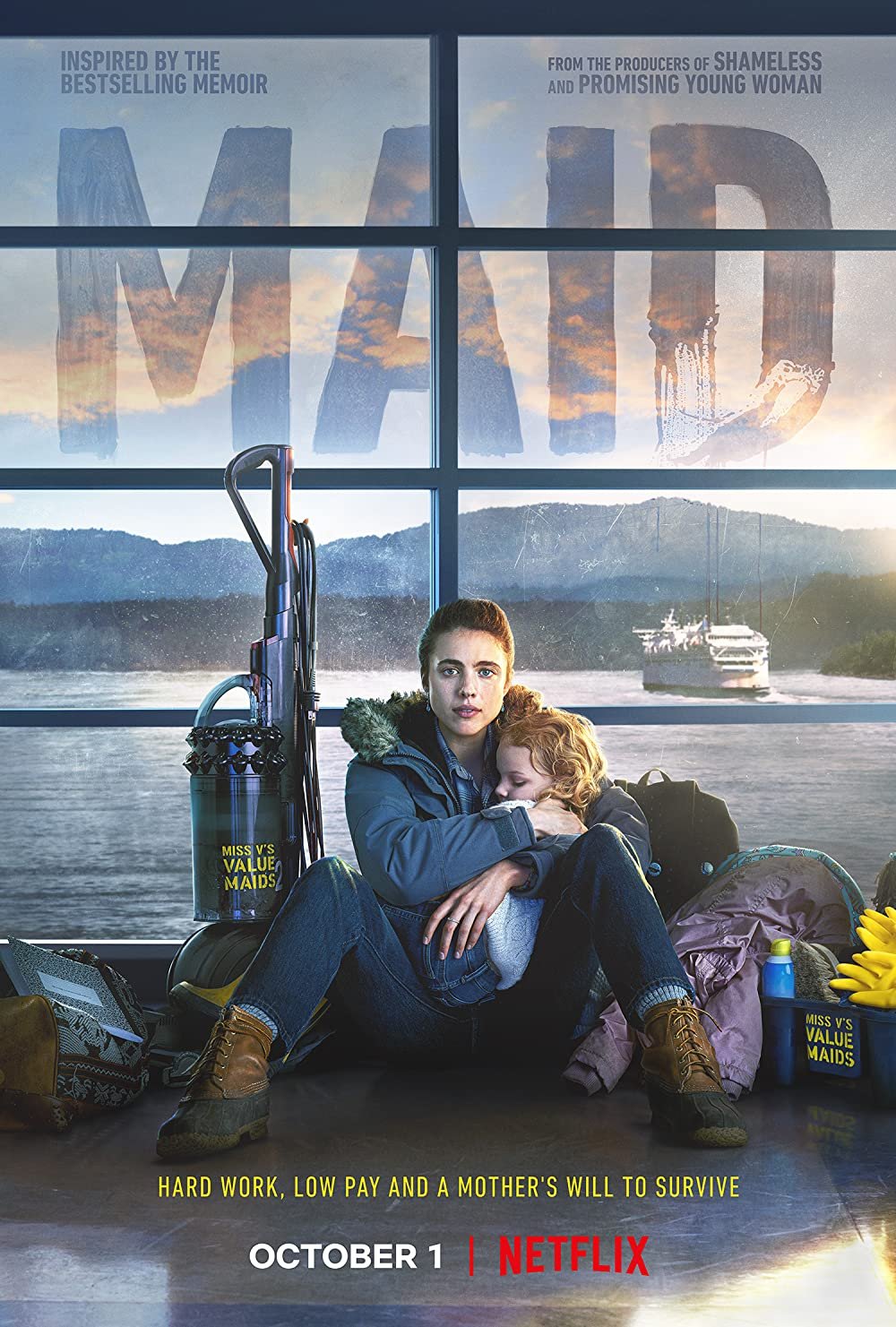“Maid” And Its Sweeping Portrait of Domestic Violence
EDITOR’S NOTE: Kelsey did a great job compiling domestic violence support resources. They are listed at the bottom of this raw & honest dive into one of the most powerful shoes on TV right now.
I can count on one hand how many times my ex-boyfriend hit me.
In fact, when I finally left him for real for real, he hadn’t laid a finger on me in weeks.
Did he stalk me? Yes.
Did he control my every move and entire being? Yes.
Did he isolate me from my family and friends? Yes.
Did he emotionally and verbally abuse me, almost daily? Yes.
Did he threaten my life, my family’s, and his own? Yes, yes, and yes.
Which is what “Maid,” the Netflix drama about twenty-something single mother/creative writer/maid Alex (who is brilliantly played by “Fosse/Verdon’s” Margaret Qualley) entirely, perfectly, unequivocally depicts. And, thanks to its opening scene where Alex scoops up her two-year-old daughter Maddie in the middle of the night to flee her boyfriend & child’s father, Sean, after experiencing, technically, a non-violent altercation, I was hooked.
Did Sean throw an item at/by/towards her? Yes.
Was the entire incident emotionally-charged, and considered “non-violent”? Depends on how you define violence. Surely, there was the ever-present threat of it.
But does Sean touch her? No.
In fact, he never does. Not once, throughout the entire 10-episode series.
Though, that’s the point, right? (At least it was to me.) To remind—or, for the first time, inform—viewers that domestic violence isn’t wholly, solitarily physical abuse. That it’s not just broken ribs and black eyes. That it can be, instead, purely acts of control, stalking, emotional torture, verbal assault, economic coercion, and much more.
So much more.
OVERWHELMING STATS
Specifically, according to Women Against Abuse, when it comes to domestic abuse in Philadelphia:
the Philadelphia Police respond to more than 100,000 9-1-1 calls each year that are domestic in nature
the courts are clogged with more than 12,000 requests for Protection From Abuse orders each year
the Philadelphia Domestic Violence Hotline was forced to turn away an average of nearly 9,000 requests for shelter each year for the past three years (FY19-17) because our 200 emergency safe haven beds - the only shelter beds available for survivors of domestic violence in Philadelphia - were already full
27 people were killed by domestic violence in Philadelphia in 2018
A PROPER COVERING OF THE SUBJECT MATTER
Netflix’s “Maid” covers all of that. Protection orders, emergency shelters, court cases, etc. It also well illustrates the constant fight DV victims face (and struggle to overcome): crippling, debilitating insecurity:
I can’t find anyone better.
I won’t find anyone better.
I don’t deserve anyone better.
“Maid” also reminds us—DV victims, that is (including Stephanie Land, the author of the memoir Maid: Hard Work, Low Pay, and a Mother’s Will to Survive, which the show is based upon)—how abusive relationships rarely, if ever, start out violently.
So, we go back, again and again and again. Or, never leave in the first place.
For love, sure, maybe, but mainly out of fear of:
The abuser becoming more violent
The abuser turning his anger on her children, pets, or other loved ones
Losing custody of children
Lack of means to fully support herself, such as her own bank account or home
Embarrassment from friends or family learning about her problems
And since studies show that 75 percent of women who were murdered by an intimate partner were killed after they either attempted to leave or successfully left, who can blame them?
I certainly can’t, which makes the show all the more triggering.
If I’d left sooner, would it—the physical abuse—never had happened in the first place?
And if I’d Ieft later, would I be here today?
Probably not.
To be clear, though “Maid” is primarily about DV, it’s also about mental illness (from which Alex’s mother, specifically, almost whimsically suffers until, well, it gets very real in one particular episode), alcoholism, homelessness, tenant rights, child custody, cleaning houses, story-telling,
and the motherfucking “pro-life” decision makers.
To you, I scream, do better.
Be better.
You keep changing the laws for women when you’re not, for the most part, women. How about you let us, for God’s sake, decide how and when we want to mother and how and when we can provide our children our best—and their best—possible selves?
TLDR: There is a very, very good chance you know someone who has or is currently experiencing some form of domestic violence. (In fact, according to the National Domestic Violence Hotline, “more than 1 in 3 women and 1 in 4 men in the U.S. will experience rape, physical violence, and/or stalking by an intimate partner.”) And, hopefully, thanks to shows like “Maid,” both men and women can start to get the help they need and, more importantly, deserve from friends, family, landlords, banks, shelters, law enforcement, lawyers, politicians (fingers fucking crossed), and the like.
I wasn’t hit until the 392nd day of my two-year relationship. (Yup, that date is sewn into my soul.) Yet, before that, he stole all of my money, told me I was worthless, smashed all of the picture frames [of my friends and family] in my apartment, enforced sex against my will, pulled a gun on me, locked me out of my own home, called me over 200 times in 12 hours, and committed a million other non-physically abusive acts.
So, please,
please,
please,
please understand, and respect, that “abuse is more than physical violence.”
**********
For immediate help:
· Domestic Violence Support | The National Domestic Violence Hotline
· CALL 1-800-799-SAFE (7233)
· TEXT “START” to 88788
For housing and shelter, in Philadelphia (via healthymindsphilly.org):
· Philadelphia Domestic Violence Hotline
866-SAFE-014 (866-723-3014)
The 24/7 hotline can direct you to appropriate emergency housing and shelter programs.
· Women Organized Against Rape
(215) 985-3315 or Call the 24-hour help line: 215-985-3333
Counseling for adults, teens and children affected by sexual violence including sexual abuse, sexual assault, rape/date rape and incest.
· The National Domestic Violence Hotline (NDVH)
1-800-799-SAFE (7233)
Operating around the clock, seven days a week, confidential and free of cost, the National Domestic Violence Hotline provides lifesaving tools and immediate support to enable victims to find safety and live lives free of abuse. Callers to The Hotline can expect highly trained, experienced advocates to offer compassionate support, crisis intervention information and referral services in over 170 languages. Visitors to this site can find information about domestic violence, safety planning, local resources and ways to support the organization.
· National Teen Dating Violence Hotline
1-866-331-9474 or text “LOVEIS” to 22522.
· Department of Defense Safe Helpline – Military Sexual Assault
877-995-5247
This crisis support service is available to any member of the Department of Defense community affected by sexual assault. You can click, call, or text to get anonymous one-on-one advice, support, and information 24 hours a day, 7 days a week. Or find more resources from the VA here.
Whether you are in an abusive relationship, or if you are worried about a friend, resources here can help you get accurate information and the help you need.
For No Cost/Low Cost Legal Aid, in Philadelphia (via healthymindsphilly.org):
· Congreso de Latinos Unidos’ Latina DV Program
(215) 763-8870, North Philadelphia
Limited Family Law and domestic violence legal help available.
· Legal Clinic for the Disabled
215-587-3350, Center City
Provides free legal services to low-income individuals with disabilities.
(215) 988-1242
Provides statewide free legal advice, counseling and information on civil legal matters to seniors 60 years old and older.
(215) 686-7082, Center City
Free legal advocacy and representation for relationship violence-related legal matters including: Protection from Abuse (PFA) Orders, child custody and child support.
· Philadelphia Legal Assistance
PLA helps clients maintain custody of their children and protect themselves and their children from violence. The Family Law Unit at Philadelphia Legal Assistance is OPEN during the pandemic.
Family Law Hotline: 215-981-3838 for help Monday – Thursday, 9:30 A.M. – 12:00 P.M.
The Temple Legal Aid Office provides free legal representation in civil law matters to qualifying, low-income, Philadelphia residents. The Legal Aid Office frequently helps clients with issues related to Family law (child and spousal custody and support, kinship adoption, etc.)
· Legal Service Department of the Mazzoni Center
Mazzoni Center’s legal services department, is the only program in the Commonwealth of Pennsylvania that specifically provides direct no-cost or low-cost legal assistance to low-income and lower-income, underserved LGBTQ populations.
o Call 215-563-0657
The Women’s Law Project provides free information and guidance on many issues including those related to reproductive health, paid leave, domestic and sexual violence, sexual harassment, and sex and gender discrimination in schools, the workplace, and other institutions.
o Call 215-928-9801 follow the prompts, and leave a message, or submit an intake form through the website.
And for further information regarding DV counseling, abusive partners, immigrants, information on domestic violence, pet surrender, and community violence, check out https://healthymindsphilly.org/domestic-violence-resources/


